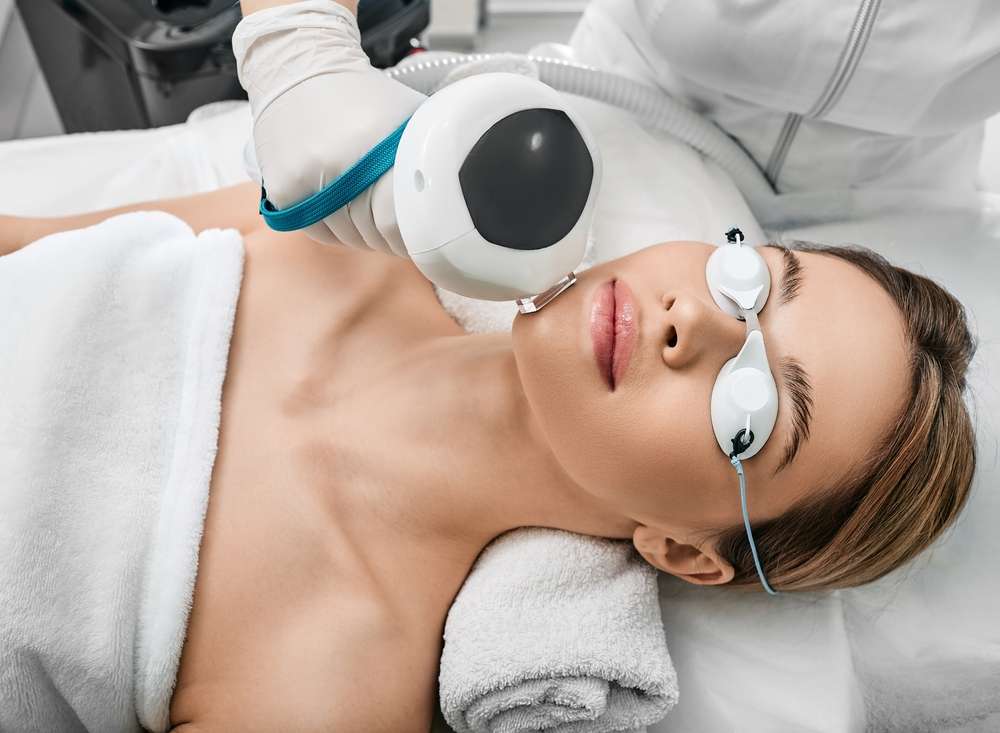Advanced Laser Skin Rejuvenation for a Brighter Complexion
Laser skin treatments provide a powerful, non-surgical option to refresh your complexion using concentrated light energy. From smoothing fine lines and reducing acne scars to correcting sun-induced pigmentation and minimizing pores, modern lasers deliver targeted results with customizable protocols. Learn how different lasers work, what to expect in terms of recovery and cost, and how to pick the right clinic to get safer, longer-lasting improvements to your skin.

Laser technology has transformed cosmetic dermatology by offering targeted, non-invasive ways to improve many common skin concerns. By delivering focused light energy into the skin, lasers prompt controlled tissue responses—removing damaged cells, evening out pigment, and stimulating collagen for firmer, smoother skin. Below is a practical guide to what laser treatments can do, their benefits and risks, typical costs, and how to choose a qualified provider.
What skin concerns can laser treatment address?
Lasers are adaptable tools that can treat a broad spectrum of issues. Common indications include:
- Fine lines and wrinkles: Ablative and non-ablative lasers resurface skin and encourage collagen remodeling to soften lines.
- Acne scars and other scarring: Fractional lasers and some ablative systems break down scar tissue and promote smoother skin architecture.
- Hyperpigmentation and sun damage: Intense pulsed light (IPL) and pigment-targeting lasers help reduce dark spots and even skin tone.
- Uneven texture: Treatments can smooth rough patches and improve overall skin feel.
- Enlarged pores: By tightening surrounding tissue and stimulating collagen, pore appearance can be reduced.
- Rosacea and persistent redness: Certain vascular lasers target dilated blood vessels to calm facial redness.
Effectiveness depends on the severity of the condition, the laser type selected, and individual skin characteristics. A personalized assessment ensures the best match between concern and technology.
Benefits of laser skin rejuvenation
Laser options provide several advantages over topical products and many manual procedures:
- Precision: Energy can be concentrated on problem areas without extensive damage to neighboring tissue.
- Tailored treatments: Clinics can adjust wavelength, pulse duration, and intensity to suit skin type and specific issues.
- Short recovery for many procedures: Some treatments have minimal downtime, allowing a quick return to daily life.
- Durable improvements: When coupled with proper skincare and sun protection, results can endure for months or years.
- Natural stimulation: Lasers often drive the body’s own repair mechanisms, particularly collagen production, improving skin structure over time.
These strengths make lasers a compelling option for patients seeking visible, relatively fast improvement.
Potential risks and side effects
Although generally safe when administered by trained professionals, laser procedures can carry side effects. Common and expected reactions include:
- Short-term redness and swelling that typically subsides within days to a week.
- Temporary changes in skin pigmentation—either lightening or darkening—which usually reverse but may persist in rare cases.
- Mild pain or discomfort during and shortly after treatment; topical anesthetics are often available.
- Infrequent but possible complications such as infection or scarring, more likely if post-care instructions aren’t followed.
To reduce risk, choose a reputable clinic, disclose medical history and skin type, and adhere closely to pre- and post-treatment guidance.
Typical costs and treatment types
Below is a general pricing guide for commonly used laser and light-based therapies. Actual fees vary by location, clinician expertise, and the size of the area treated.
| Treatment Type | Average Cost per Session | Typical Number of Sessions |
|---|---|---|
| Fractional Laser | $1,000 - $2,500 | 3–5 |
| IPL (Intense Pulsed Light) | $300 - $600 | 3–6 |
| CO2 Laser Resurfacing | $1,500 - $3,000 | 1–2 |
| Nd:YAG Laser | $400 - $800 | 4–6 |
| Erbium Laser | $1,000 - $2,500 | 1–2 |
Prices, rates, or cost estimates mentioned in this article are based on the latest available information but may change over time. Independent research is advised before making financial decisions.
Many clinics offer package pricing for multiple sessions, which can reduce the per-session expense. Financing plans or medical credit options are sometimes available to spread costs.
How to choose the right clinic
Selecting a skilled provider is critical to achieving satisfying and safe results. Consider these factors when researching clinics:
- Credentials and experience: Verify the training and board certifications of the person performing the procedure.
- Range of technologies: A clinic that offers multiple laser systems can tailor treatment more precisely to your concern.
- Before-and-after portfolio: Photos of previous patients with similar issues help set realistic expectations.
- Reviews and testimonials: Feedback from other clients gives insight into service, outcomes, and aftercare.
- Clean, professional facility: Hygiene and organization reflect a practice’s standards.
- Transparent communication: Clear information about costs, expected results, risks, and recovery is essential.
- Personalized treatment plans: Avoid one-size-fits-all solutions—good providers assess skin type, lifestyle, and goals.
Schedule consultations with several clinics if possible, and ask specific questions about device models, follow-up care, and complication rates.
Laser skin treatments deliver a powerful way to refresh your complexion, correct pigmentation issues, reduce scarring, and improve texture. While results can be dramatic, they require realistic expectations, proper sun protection, and sometimes multiple sessions. Choosing a qualified practitioner, understanding the trade-offs of each laser type, and following aftercare instructions will maximize the benefits and minimize complications.
This article is for informational purposes only and should not be considered medical advice. Please consult a qualified healthcare professional for personalized guidance and treatment.




